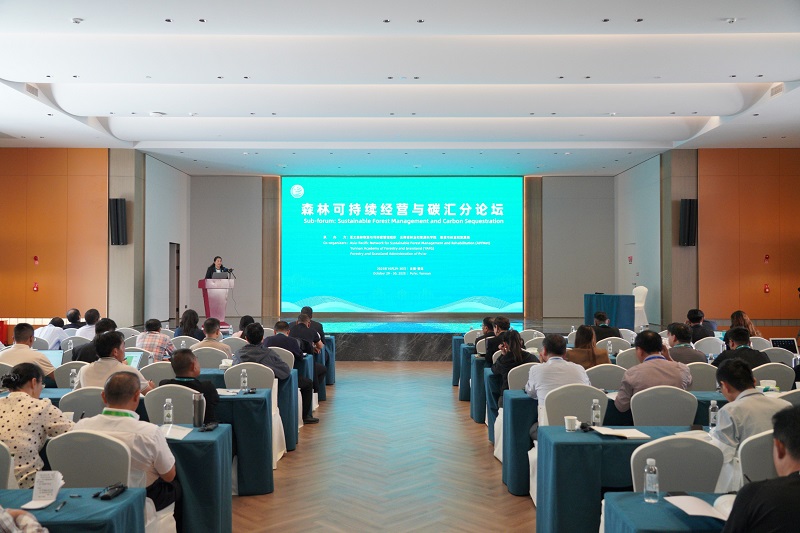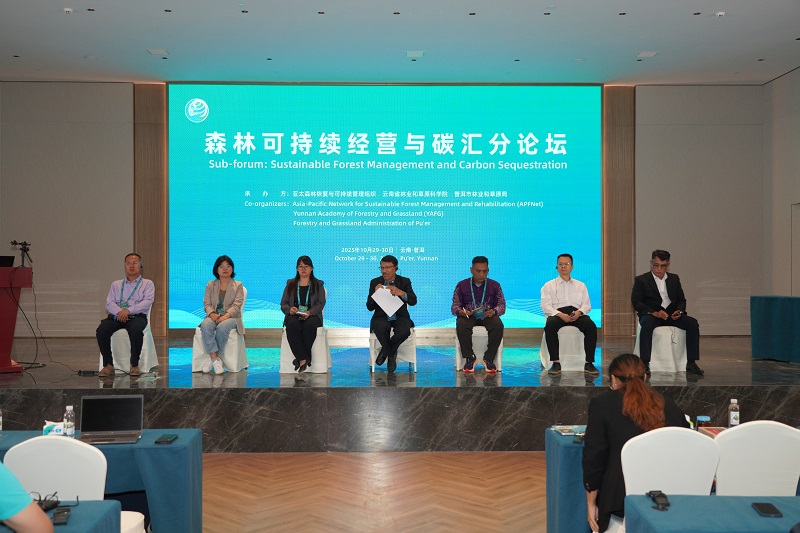Pu'er, China – From 28 to 30 October 2025, during the Second Pu'er Forum on Asia-Pacific, a dedicated sub-forum on "Sustainable Forest Management and Carbon Sequestration" featured systematic discussions among 13 international and domestic experts on diverse pathways and innovative practices in the field.The convening of this sub-forum marked a deeper phase of Asia-Pacific forestry collaboration. Moving forward, enhanced cooperation will strengthen the region's critical contribution to global climate governance through forestry.

The sub-forum facilitated multi-level discussions—from international and Asia-Pacific to ecological regions and individual forest farms—on key topics such as voluntary carbon mechanisms, innovation, and best practices in sustainable forestry. This convergence of the latest international and regional insights provided new pathways for enhancing capacity building in forest carbon sequestration across the Asia-Pacific.
Experts highlighted that enhancing forest carbon sinks is a quintessential nature-based solution for addressing climate change. They emphasized that advancing sustainable forest management through innovative tools and supportive policies can not only effectively increase carbon sequestration but also unlock the ecological value of forests via carbon market mechanisms, such as international voluntary emission reduction systems. This, in turn, provides new momentum for sustainable economic development.

During the forum, specialists shared innovative methodologies and case studies related to carbon sink measurement, monitoring, and verification.
Several Asia-Pacific economies showcased their distinctive approaches:
● China has deeply integrated sustainable forest management and carbon sink enhancement into its national climate strategy, striving to promote high-quality forestry development through policy and market mechanisms.
●Vietnam has effectively encouraged sustainable forestry practices by establishing its own national forest certification system.
●Myanmar, among other economies, is advancing forest conservation and ecological restoration through the implementation of REDD+ actions.
Southeast Asian economies are strengthening regional carbon capacity by optimizing land use and planting structures, while Pacific Island economies are integrating nationwide tree-planting programs with community development, creating a model that balances ecological and economic benefits. The Saihanba Mechanized Forest Farm in Hebei Province, China, demonstrated how scientific management can transform barren land into a vast forest, offering a significant reference for ecological rehabilitation in similar regions. Research conducted by the Wangyedian Experimental Forest Farm in Chifeng City, Inner Mongolia, on precise carbon stock measurement and sequestration potential, serves as a valuable model for carbon enhancement and trading in warm temperate forests.